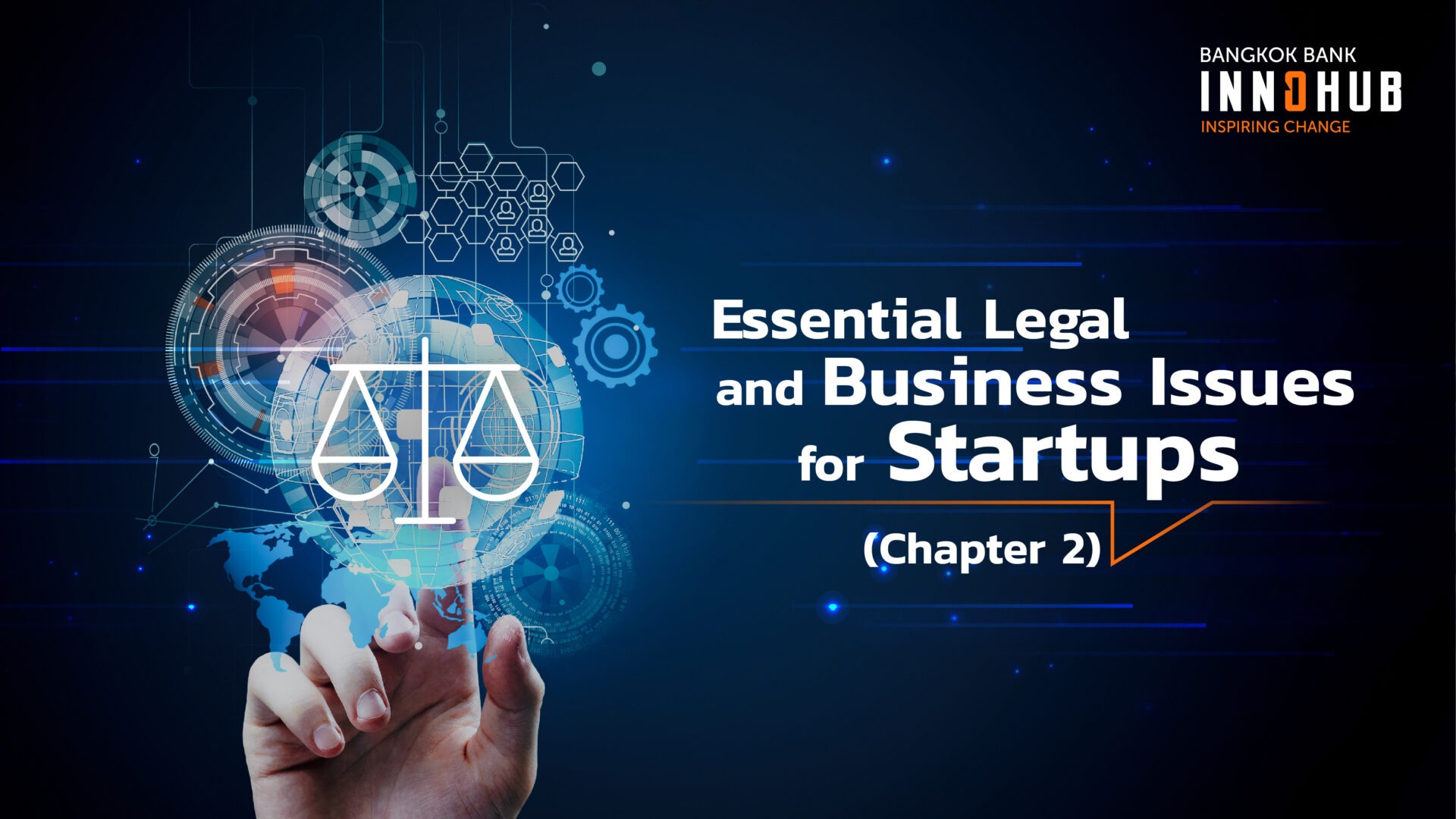Essential Legal and Business Issues for Startups (Chapter 2)
In the first part of the series, we discussed three important legal issues that entrepreneurs often overlook. Here we present more recommendations for running a healthy startup, in cooperation with law firm Kudun & Partners.
4. Clear the air between founders and stakeholders
When you’re starting, conflict with stakeholders is a very real possibility. The best way to avoid this is to maintain clarity through a legal stakeholder’s agreement, which can resolve certain grey areas such as:
- Specific goals and objectives of your business, including requirements for meetings and formal gatherings
- Internal management structure, such as who is responsible for particular tasks and duties – as well as the status and role of each person involved in the stake/share
- Matters related to financial distribution, including contribution and ownership of equity, policies regarding net profits, and whether restrictions apply to any share transfers
- Conflict resolution processes, including methods in place to resolve internal disputes between the shareholders and directors
- Policies for individuals who either decide to quit, or fail to carry out their part of the agreement
Having a mutual agreement between founders and stakeholders will go a long way towards amicably resolving the above situations.
5. Safeguard intellectual property
Loss of intellectual property is a great risk for businesses, especially those that integrate in-house technology in their core operations. Indeed, investors will need assurance that your business is in absolute control of the relevant intellectual property, so that its advantages can be relied upon in the future.
To that end, your employee contracts should clearly state that any IP generated in the course of their work will be legally owned by the company. Agreements of this nature will safeguard against potential future lawsuits.
6. Watch for exclusivity agreements
Some startups make agreements with ‘matching agents’. These agents may possess valuable links to angel investors, venture capitalists, and individual investors – but it is worth being cautious of their heavy demands.
It pays to do some research on these agents and dig deep into their experience, noting their success rate in finding investors for their clients. Before entering into a written agreement, startup owners should take into account any exclusivity requirements that bar them from seeking out other investors outside the current arrangement. Make your acceptable investment terms clear prior to signing, including the amount of shares that investors will receive.
Moreover, if a prospective investor is currently in negotiations with you, that investor should be granted an exception in any exclusivity arrangement.
7. Plan your labor contracts
Labor contracts bring security to you and your employees alike. Keep them short and clear, while covering general work requirements, payment packages, holidays, work hours, confidentiality agreements, provisions for intellectual property, and other key sections. Be sure your company follows the governing labor laws, including provident fund contributions under the Provident Fund Act.
Best practice is to put in place pre-made contracts, which can also help investors see that your business is well organized internally.
It’s the little things that count
Experienced investors will make a special effort to examine these and other details of your startup, to see whether you’ve dotted your i’s and crossed your t’s. First impressions count for a lot in the world of business, and it’s well worth stepping back from your day-to-day routine to ensure that these legal and operational issues have been adequately addressed.
The seven key legal and business issues discussed in this series will not guarantee business success, but they could go a long way towards attracting investors and freeing up your schedule later so that you can focus on each obstacle as it comes into view. By taking care of these requirements you’ll be able to spend much more time on the core functions of your business – making the journey forward a lot more satisfying.
This article was written in collaboration with Kudun & Partners law firm. To read the original, please visit https://www.kap.co.th/news-and-insights/
Authors:
- Troy Schooneman, partner and head of Startup Practice
- Kongkoch Yongsavasdikul, partner
- Suchaya Tangsiri, associate and legal counsel for startups
- Nichapat Anantaseriwittaya, associate
Anyone interested in InnoHub Season 2 can be processed via https://www.bangkokbankinnohub.com




